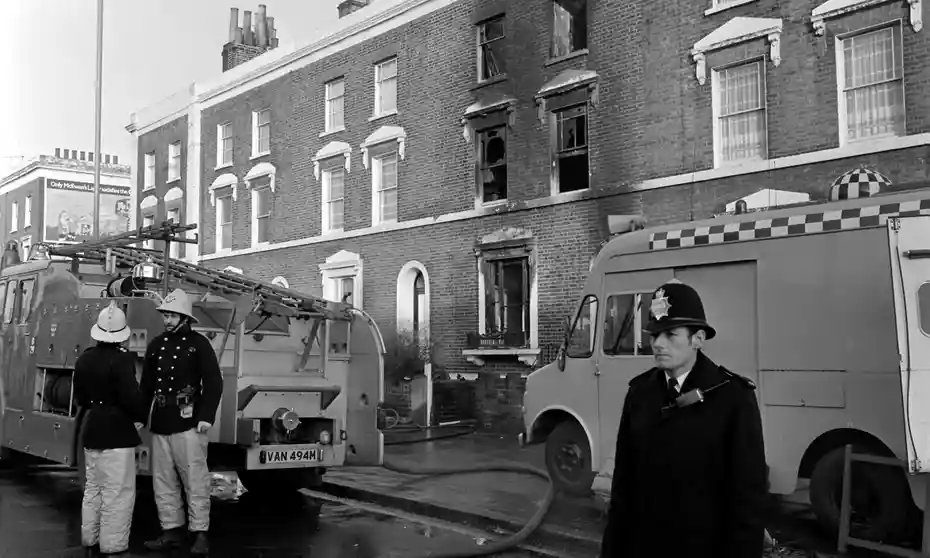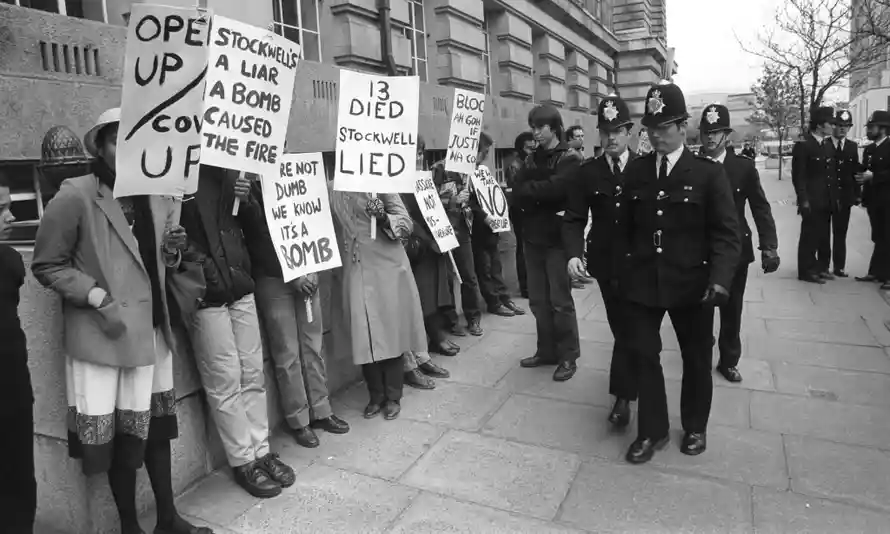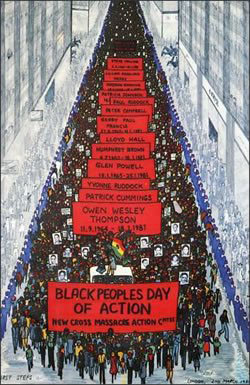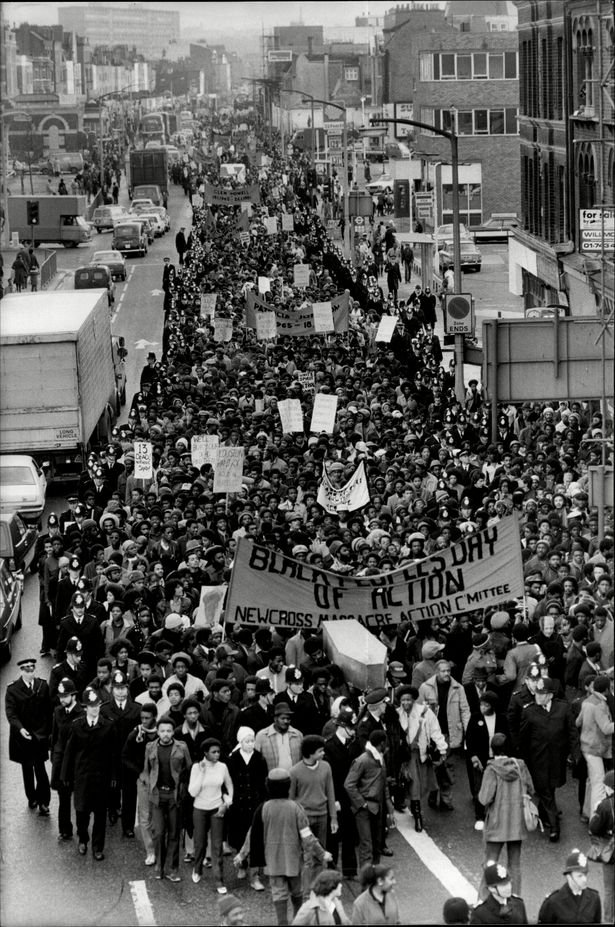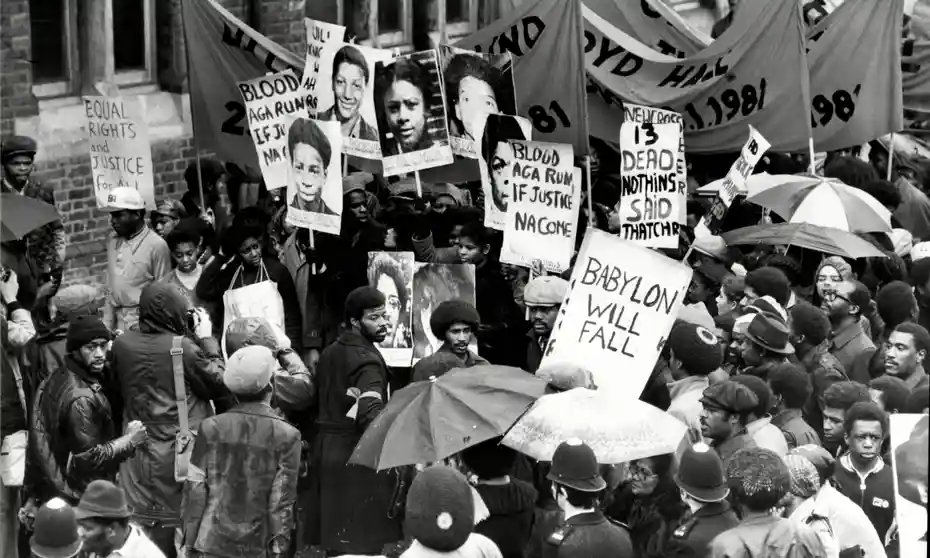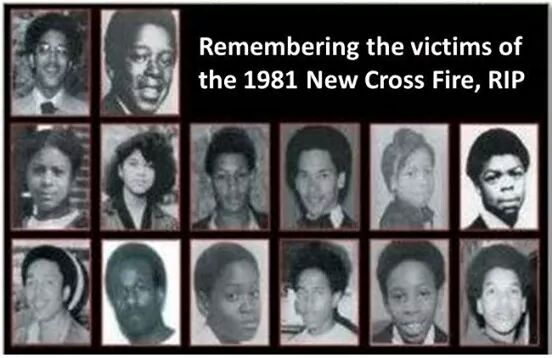Today is the 40th Anniversary of the New Cross Fire.
On Saturday 17th January 1981, Yvonne Ruddock was hosting a 16th birthday party at her home in Deptford. More than a hundred of her friends had been invited, most of whom were black. In the early hours... THREAD
On Saturday 17th January 1981, Yvonne Ruddock was hosting a 16th birthday party at her home in Deptford. More than a hundred of her friends had been invited, most of whom were black. In the early hours... THREAD
...of Sunday morning a fire broke out, some party goers managed to escape by climbing out of windows but 13 people perished in the blaze - all were black and included Yvonne. Akala describes the fire as "one of the largest single losses of life in post-war Britain". ...
Devastatingly, 18 months later one of the survivors, Anthony Birbeck, was so traumatised by the events of that night he took his own life. He is often viewed as the 14th victim of the fire.
At the start of the investigation, police believed it was a racist attack...
At the start of the investigation, police believed it was a racist attack...
...that a firebomb was through through a downstairs window. At the time, it was not uncommon for a black person to be shot by white men with pellet guns whilst walking down the road and before the fire many black homes and community centres were targeted and burnt down...
...by the National Front. However, the police later concluded the fire had started inside the house, and came up with the theory that a fight had broken out between a group of boys at the party and this had led to the fire.
One of the boys called in for questioning said...
One of the boys called in for questioning said...
"they refused to listen to me when I told them that there wasn't a fight ... they had their version of events and I felt I had to go along with them. In the end I caved and told them what I thought they wanted."
Eight boys who'd been at the party made statements to the police...
Eight boys who'd been at the party made statements to the police...
...testifying that a fight had taken place. One of which remembers the police interrogating him like he was a criminal. His terrifying experience escaping from the party was made worse by his experience at the hands of the police. "They gave me no respect and I felt like I had...
...been arrested, not asked to share information. They didn't want to listen to the truth"
The local community remained convinced that the fire had been a racist attack and were angered and hurt by the turn the investigation had taken, a hurt compounded by public indifference...
The local community remained convinced that the fire had been a racist attack and were angered and hurt by the turn the investigation had taken, a hurt compounded by public indifference...
...and media hostility. The total lack of empathy from the then PM Margaret Thatcher and the Queen spoke volumes. The Queen refused requests to send letters of condolence to the families and Thatcher also declined paying respects. This disregard of black lives from the...
...government, monarchy and police, as well as racist reporting in the press demonstrated the systemic racism present in British society. 6 weeks after the fire, more than 10,000 people angered by alleged police brutality and incompetence took part in a protest march. ...
Later, Lord Scarman described the relationship between police and the black community as "a tale of failure"
Three months after the fire, an inquest took place. Usually inquests surround events like this would take around 2 years. It seemed to Pressure Groups that authorities...
Three months after the fire, an inquest took place. Usually inquests surround events like this would take around 2 years. It seemed to Pressure Groups that authorities...
...wanted to hurry it up so the incident could be forgotten about. The coroner essentially agreed, later saying "It was a very volatile, highly charged event ... my concern was to stop blood on the streets. We'd had one riot already, I wanted to do everything possible to...
...prevent another one"
In an inquest, a coroner has complete control over what evidence is put before the court and is the only person who can sum up to the jury. The coroner spent a third of his summing up discussing the theory that a fight had broken out at the party -even...
In an inquest, a coroner has complete control over what evidence is put before the court and is the only person who can sum up to the jury. The coroner spent a third of his summing up discussing the theory that a fight had broken out at the party -even...
though every one of the statements supporting that idea had been retracted. The jury returned an open verdict, leaving bereaved families more appalled than ever.
Years later police ruled out the idea that a fight broke out at the party. They have also ruled out the idea of an...
Years later police ruled out the idea that a fight broke out at the party. They have also ruled out the idea of an...
...attack from someone outside. But campaigners say that by wasting time pursuing the so-called fight theory, the police lost crucial evidence and any credibility.
Following the fire racial tensions remained high, an 'assembly of people' consisting of 500 black people formed...
Following the fire racial tensions remained high, an 'assembly of people' consisting of 500 black people formed...
...as a community group against the failure and clear institutional racism of the Met. The group organised the Black People's Day of Action to demonstrate against systemic racism. On 2nd March 1981 the largest black demonstration in British history took place. 20,000 marched...
...on Parliament on a weekday, including members of the Black Panther Party, Black Parents Movement & Black Youth Movement, holding placards stating "Thirteen dead, nothing said" and "No police cover-up". To no surprise newspapers were extremely hostile to the...
Black People's Day of Action, using headlines "Rampage of a Mob" (Daily Express) and "The Day the Blacks Ran Riot in London (The Sun). These headlines led to mass Black boycott of the newspapers. The protest from Deptford to Hyde Park had a single isolated incident of a...

 Read on Twitter
Read on Twitter
